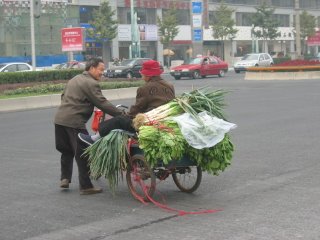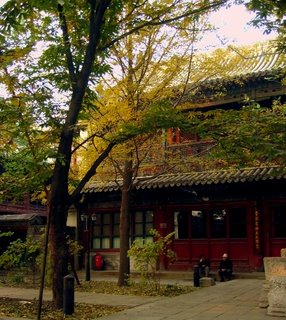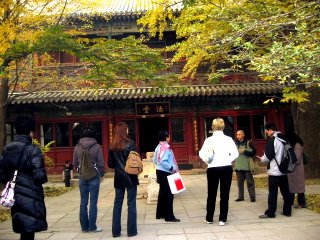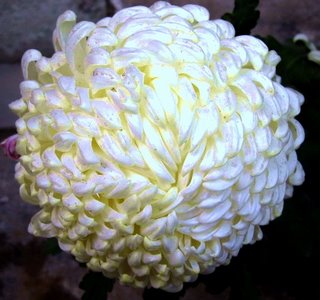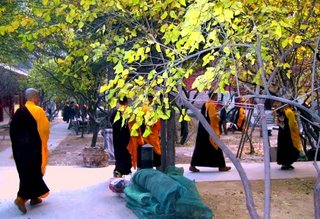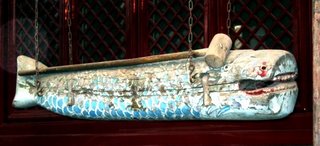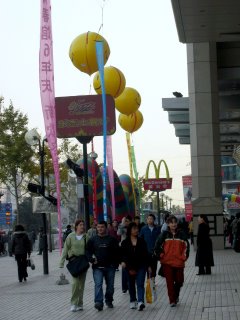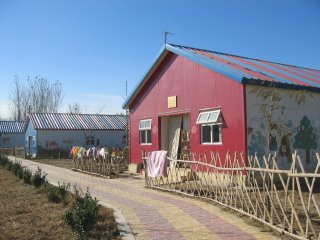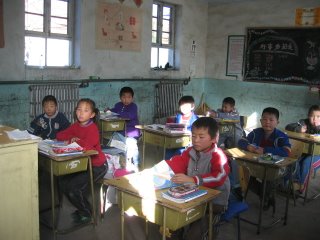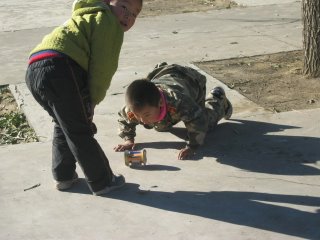On Friday night, Mr. S. Claus, affectionately known as "Santa", made an unscheduled stop in Beijing, China on the first leg of his World Tour. At approximately 8:30pm, CN time, Old St. Nick appeared at the Nolita YMCA in Beijing's Chongwen district as the Y's Christmas party was concluding.
The Nolita Y holds its annual event with gusto and this year's was no exception. Over 200 children of all ages were enjoying the joyous singing, dancing and other merriment when a Y official, Candy, announced a surprise guest. The Y had received word only a day before that "The Jolly Guy" might drop by. After a short introduction, "The Bearded One" leaped onto the scene with Mrs. Claus following behind as is custom for women in Asia.

What happened next resembled near hysteria. It was clear that many of the "children" had never seen the Honorable Mr. Claus before as he generally arrives under the cover of night. After a couple of warm Ho Ho Hos, most of the crowd rushed "The Man in Red" to hug him and by chance receive one of the goodies from his big, red bag. Witnesses said that Mrs. Claus dashed for cover to avoid injury leaving her adoring spouse to fend for himself. As of press time, no one was hurt in the melee although Y officials had to be concerned.
"I'm getting 'a big long in the tooth' to receive this type of 'rock star' treatment" Mr. Claus wittingly said. "But you can't beat this type of excitement!", he went on, "I feel young again!".
Party attendees remarked that Santa looked trim and fit for a man who has traveled extensively over the last 50 odd years. Some astonished partiers said that, like the Rolling Stones, the way Santa looked he could go on forever.
Earlier in the day, tourists at The Great Wall reported a red blur in the area. Similar sightings were observed at other popular Beijing area spots like The Forbidden City and Tiananmen Square. This reporter confirmed in an exclusive backstage interview at the Y that "I thought I'd enjoy Beijing while visiting China" Mr. Claus said.
After the goodies were distributed, Santa spent a few moments having his picture taken with a few excited fans before dashing out the door onto his reindeer-piloted sleigh.
To bring the crowd back into control, YMCA staff distributed ice cream which cooled things down. As party guests enjoyed their ice cream, several heard a hearty "Merry Christmas and to All and to All a Good Night" across the Peking sky.
Anonymous Reporting by You Know Who














+of+Copy+of+Copy+of+Picture+145.jpg)


+of+Copy+of+Copy+of+Picture+144.jpg)


.jpg)
.jpg)
.jpg)


